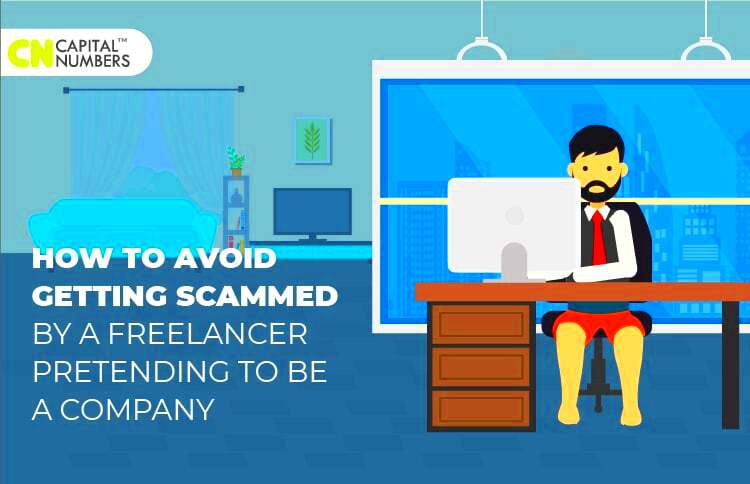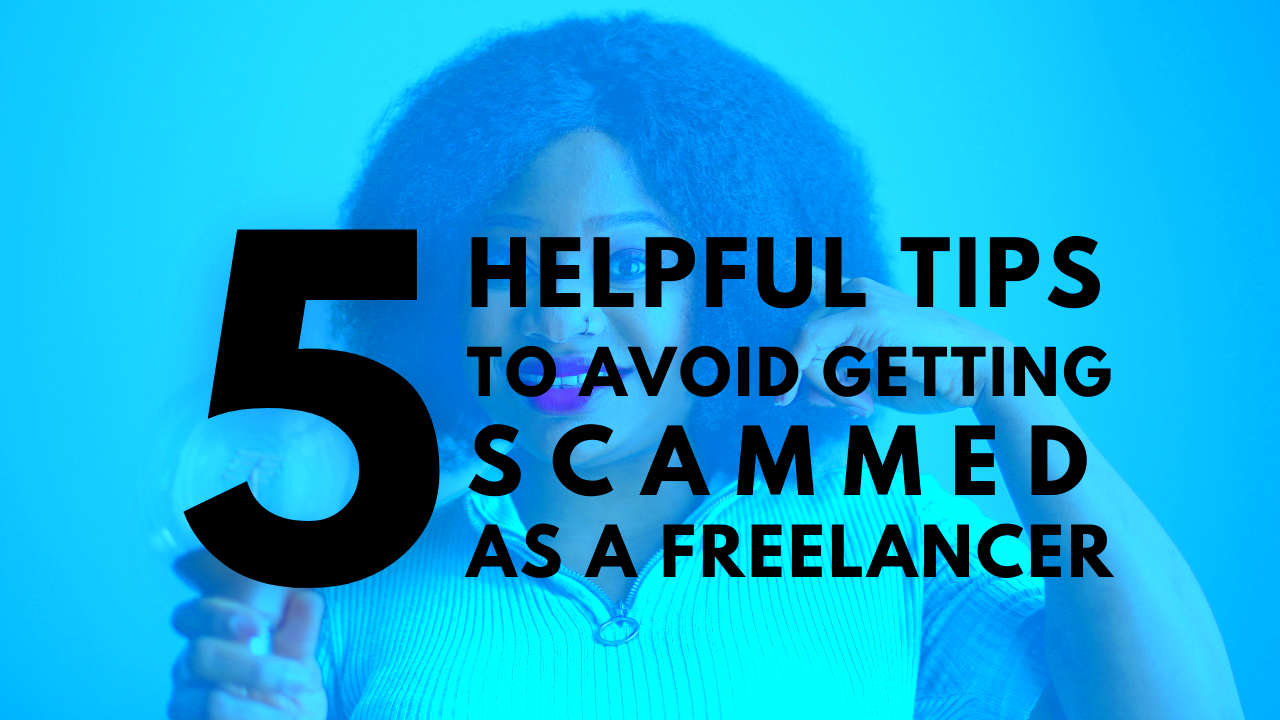Freelancing has become a popular way to earn money online, but with the rise of freelance work comes the risk of scams. Freelancers often face challenges such as unreliable clients, unfair payment terms, or even fraudulent job postings. It's important to know how to protect yourself from these scams and avoid losing time, money, or reputation. In this post, we’ll explore common freelance scams, how to spot them, and tips on staying safe while working online.
Common Types of Scams Freelancers Face

Freelancers can encounter various types of scams that can affect their income and credibility. Here are some of the most common scams you should be aware of:
- Fake Job Postings: Scammers post fake job listings, hoping freelancers will apply. Once you send your proposal, they may ask for personal information or money upfront.
- Non-payment or Delayed Payment: Some clients may refuse to pay after work is completed or delay payments for long periods, leaving freelancers unpaid for their efforts.
- Phishing Scams: Freelancers might receive emails or messages from supposed clients that look legitimate but are designed to steal personal information or login details.
- Escrow Scams: Scammers claim to pay via a fake escrow system, which seems secure but ends up being a way to trick freelancers into thinking they are protected.
- Overpayment Scams: The client “accidentally” overpays and asks the freelancer to send the difference back. Later, the payment is reversed, and the freelancer loses both the money and their work.
Understanding these scams can help freelancers avoid becoming victims. Always be cautious and take steps to verify clients before proceeding with any work.
Also Read This: What is the Ideal Size for a Fiverr Ad Graphic?
How to Identify Red Flags in Freelance Jobs

Being able to spot red flags early can help you avoid scams and work with trustworthy clients. Here are some warning signs to look out for:
- Unclear Job Details: If a job description is vague or lacks important details such as deadlines, expectations, and payment terms, it could be a scam.
- Unrealistic Payment Offers: Offers that sound too good to be true—such as high pay for minimal work—are often scams designed to lure freelancers into a trap.
- Pressure to Start Immediately: Scammers may try to rush you into accepting the job without proper negotiation or contracts in place.
- Requests for Personal Information: Be wary if a client asks for sensitive information, such as your bank details, social security number, or login credentials.
- Low Feedback or No Reviews: If the client or company has no reviews or a history of negative feedback, it's a strong sign that they might not be trustworthy.
- Unprofessional Communication: Scammers often use poorly written emails, odd grammar, or unprofessional language. If something feels off, trust your instincts.
By paying attention to these signs, you can protect yourself from scams and ensure you’re working with legitimate clients.
Also Read This: How to Rate a Fiverr Seller if We Cancel an Order
Protecting Your Personal and Financial Information
One of the most important aspects of freelancing is safeguarding your personal and financial information. Scammers are always looking for ways to steal sensitive data, which could lead to identity theft, financial loss, or worse. Whether you're just starting out or you've been freelancing for years, protecting your information should always be a top priority. Here are some key steps to take:
- Use Strong Passwords: Avoid using weak passwords that are easy to guess. Make sure each account, especially your payment systems and freelance platforms, has a unique, strong password.
- Enable Two-Factor Authentication (2FA): Adding an extra layer of security through 2FA makes it harder for scammers to access your accounts, even if they know your password.
- Never Share Sensitive Information: Be cautious about sharing personal details like your bank account number, social security number, or full address unless absolutely necessary.
- Keep Software Updated: Ensure that your computer’s operating system, antivirus, and other software are always up-to-date to protect against cyber threats.
- Use Secure Payment Methods: Always use trusted payment methods, such as PayPal or platforms with secure escrow services, to receive payments. Avoid direct wire transfers or sharing your bank account details with clients.
By following these steps, you can protect your personal and financial information while freelancing, reducing the risk of scams and cyber threats.
Also Read This: How to Link Your PayPal Account to Fiverr
Choosing Trusted Freelance Platforms
Choosing the right freelance platform is essential for protecting yourself and your work. Some platforms offer better security and protection than others. Here's how to find a trusted platform:
- Look for Established Platforms: Stick to well-known and reputable freelance websites like Fiverr, Upwork, and Freelancer. These platforms have strong security measures in place and offer dispute resolution services if needed.
- Check Reviews and Ratings: Before signing up or accepting a job, read the reviews and ratings of the platform. This can give you an idea of its reputation among other freelancers.
- Understand the Fees: Make sure you're aware of the platform’s fee structure. Some platforms charge a percentage of your earnings, while others may charge fixed fees. Understand how this will impact your income.
- Review Terms and Conditions: Carefully read the terms and conditions of any platform you use. This helps you understand what protections are in place for both freelancers and clients.
- Verify Payment Security: Trusted platforms offer secure payment gateways, which protect both your earnings and personal information. Be cautious if a platform has untrustworthy payment processes.
Choosing a trusted freelance platform helps ensure that your transactions are secure, and that you have access to support in case something goes wrong.
Also Read This: How to Start on Fiverr: A Comprehensive Guide for Beginners
Setting Clear Terms with Clients
Setting clear terms with your clients is a crucial step in avoiding misunderstandings and potential scams. Clear communication and written agreements are key to maintaining professional relationships and protecting both parties. Here’s how you can set effective terms:
- Agree on Payment Terms Upfront: Always discuss the payment amount, method, and deadlines before starting any project. Make sure both you and the client are clear on when and how you’ll be paid.
- Use a Contract: Whenever possible, have a contract in place that outlines all the details of the project, including scope of work, timeline, payment schedule, and expectations. A written contract protects both parties.
- Clarify Project Scope: Be specific about what tasks are included in the project and what’s not. This helps prevent scope creep, where clients expect more work than what was initially agreed upon.
- Set Realistic Deadlines: Agree on achievable deadlines that both you and the client can stick to. Avoid rushing into unrealistic timelines that might compromise the quality of your work.
- Discuss Communication Preferences: Set expectations about how often and through what channels you’ll communicate with the client. This ensures that you’re both on the same page and avoids confusion.
By setting clear terms and boundaries, you protect yourself from potential disputes or scams. Always make sure the client understands what is expected and that there is a mutual agreement on the project details before you begin.
Also Read This: Fees Charged by Freelancer
How to Report a Scam
If you’ve encountered a scam while freelancing, it's important to report it so others can be warned and action can be taken. Reporting scams not only helps protect the community but also ensures that scammers are held accountable. Here’s how you can report a scam effectively:
- Report to the Freelance Platform: Most freelance websites have a reporting system in place. If you were scammed on a platform like Fiverr or Upwork, use their dispute resolution system to report the issue. This may lead to the scammer being banned or removed.
- Notify Authorities: If you’ve lost money or feel that you’ve been the victim of a crime, contact local law enforcement or a consumer protection agency. In some countries, reporting scams to government bodies can lead to investigations.
- Alert Your Bank or Payment Provider: If the scam involved fraudulent transactions, contact your bank or payment provider immediately. They may be able to reverse payments or freeze accounts linked to the scam.
- Warn Other Freelancers: Share your experience in freelancer forums, groups, or on social media to warn others. Your story could help someone avoid the same mistake.
- Leave a Negative Review: On platforms with review systems, leave an honest review of your experience with the scammer. This helps other freelancers recognize the warning signs and avoid dealing with the scammer.
By reporting scams, you contribute to a safer freelancing environment for everyone.
Also Read This: Is Placeit Against Fiverr’s Rules?
Frequently Asked Questions (FAQ)
Here are some common questions freelancers have about scams and how to avoid them:
- What should I do if a client refuses to pay? If a client refuses to pay after you've completed the work, try to resolve the issue through polite communication. If that doesn’t work, escalate the situation by reporting the client to the freelance platform or using legal means to recover your payment.
- How do I recognize a scam before I start working? Look out for red flags such as unrealistic pay promises, vague job descriptions, or requests for personal information. If something feels off, trust your instincts and avoid accepting the job.
- Is it safe to work with clients who don’t have reviews? While it's not always a red flag, working with clients who have no reviews or a negative history can be risky. Ensure you communicate clearly and agree on terms before starting the project. Always protect your payment methods.
- What should I do if I've been scammed? If you’ve been scammed, immediately report the incident to the freelance platform, contact your bank or payment provider, and alert authorities if necessary. Document everything and warn others to prevent further scams.
- Can I prevent all scams? While you can't eliminate all risks, being proactive—using secure platforms, setting clear terms, and recognizing red flags—greatly reduces your chances of falling victim to a scam.
Conclusion
Freelancing offers incredible opportunities, but it’s essential to stay vigilant and aware of potential scams. By understanding the different types of scams, protecting your personal information, using trusted platforms, and setting clear terms with clients, you can significantly reduce your risk. If you do encounter a scam, make sure to report it promptly to protect yourself and others. Remember, knowledge and preparation are your best tools for navigating the freelance world safely.




